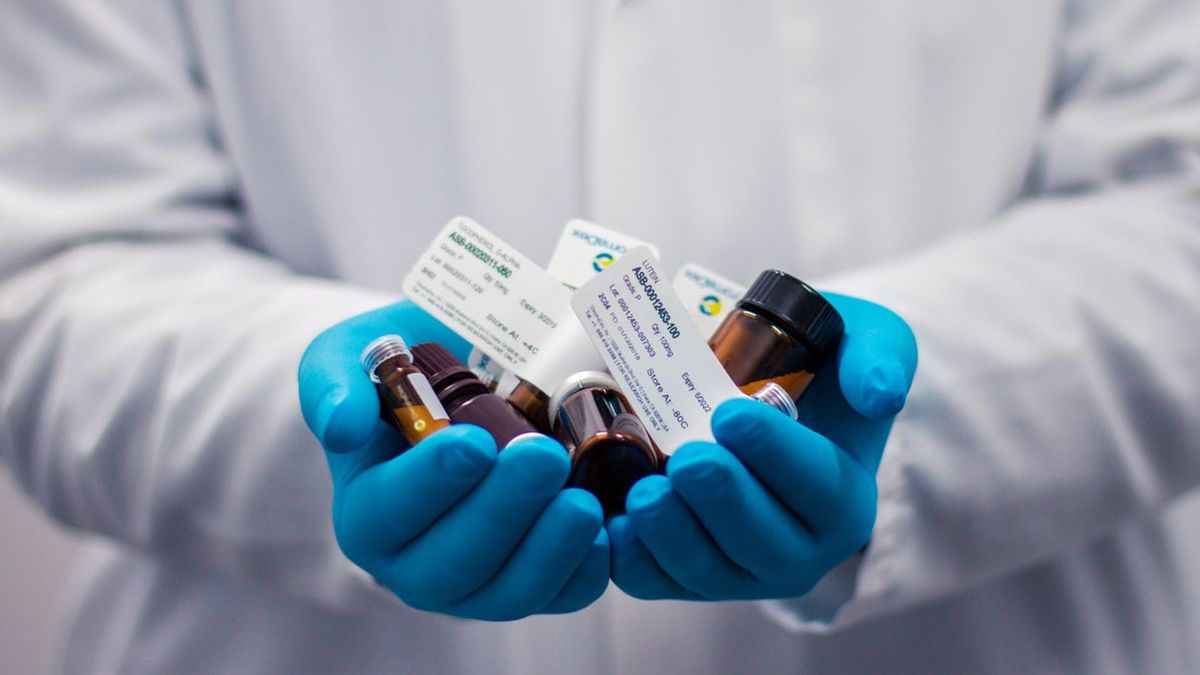JAKARTA - Scientists in the health sector and doctors in the world are thinking hard about how to create a vaccine that is effective in curing people from exposure to the corona virus or COVID-19.
It took time to create the vaccine. So, doctors recommend several types of drugs if they are able to ward off the virus that has become a pandemic.
Reporting from the Los Angeles Times, Sunday, March 22, these drugs are commonly used to treat three diseases, namely, malaria, HIV and hypertension. Although the three diseases have nothing in common with COVID-19, these drugs are currently being tested for their effectiveness in warding off COVID-19, as well as the types of drugs:
Chloroquine
Chloroquine is a synthetic version of quinine, a natural compound extracted from the bark of the quinine tree since the early 1600's. This drug has been used by malaria patients for several centuries.
The way these drugs work slows down the replication of the virus entering cells, says Karla Satchell, microbiologist at Northwestern University Feinberg School of Medicine.
To fight malaria, it is important to poison the digestive system of several blood parasites in the genus Plasmodium which are spread to humans via infected mosquitoes.
COVID-19 is caused by the novel coronavirus, not a parasite. The researchers hypothesized that chloroquine could help patients slow the spread of the virus.
Chloroquine limits the ability of the virus to use the space in cells (called vacuoles) to enter its target. Think of it as "room" in the body giving the immune system time to catch up.
Clinical trials conducted in China to test the efficacy of chloroquine against the novel coronavirus early results suggest the potential to reduce viral replication rates.
Chloroquine is known to be safe for humans (although it can cause poisoning at overdose levels). In preclinical research, this drug has been shown to be effective against viral infections such as acute respiratory syndrome (SARS), Middle East respiratory syndrome (MERS) and HIV.
Previously, the spokesman for the Indonesian government for handling COVID-19, Achmad Yurianto, emphasized that chloroquine was used to help cure diseases caused by the new corona virus, not to prevent COVID-19 infection. He asked the public not to buy or store this drug because it is classified as a hard drug and must include a doctor's prescription.
Hydroxychloroquine
This drug is a malaria drug metabolite that has the potential to treat certain autoimmune diseases such as lupus and rheumatoid arthritis. Scientists think this drug works by disrupting communication between cells in the immune system.
Doctors are testing it on COVID-19 patients. They theorized that if chloroquine was beneficial, then hydroxychloroquine might as well and recent laboratory results appear to support this theory.
About seven clinical trials have started in China to test this drug in patients with COVID-19. University of Minnesota researchers also conducted a test this week.
"After 90 days we will have some indication of whether it is effective or not and how effective it could be," said Dr. Jakub Tolar, dean of the University of Minnesota School of Medicine.
Early laboratory results in China showed hydroxychloroquine inhibited infection with SARS-COV-2. This drug is claimed to be safe for use in humans.
Kaletra
This drug is a combination of two antiviral drugs, lopinavir and ritonavir, which is used against HIV. Lopinavir prevents viral enzymes from cutting down important proteins that are key to HIV reproduction. Meanwhile ritonavir helps increase the concentration of lopinavir in cells.
Scientists wondered if the two could disrupt the life cycle of SARS-COV-2 in the same way.
But a study in the New England Journal of Medicine reports that this drug does not benefit patients with severe COVID-19. There needs to be further studies to provide broader insights.
Remdesivir
This drug was developed by Gilead Sciences to fight Ebola but has not been shown to be effective. However, remdesivir has been shown to have some effect against MERS and SARS in limited cell line and animal testing.
Given that these diseases are caused by the coronavirus, researchers think they may also have some effect on the causes of COVID-19.
Exactly how remdesivir works is unclear, although a new study shows it appears to inhibit RNA replication during the coronavirus reproductive cycle.
Remdesivir was given to the first COVID-19 patient in the United States after his condition worsened. He began to recover the following day, according to a case study in the New England Journal of Medicine.
However, whether the drug is really responsible for the improvement remains unknown.
"Although remdesivir has been given to some patients with COVID-19, we do not have strong data to show this drug can improve clinical outcomes," said the director of the National Institute of Allergy and Infectious Diseases (NIAID), Dr. Anthony S. Fauci.
Losartan
This hypertension drug prevents the angiotensin hormone from binding to blood vessel receptors.
Scientists hypothesize that losartan could help patients with COVID-19 because, as an inhibitor of angiotensin receptors, it blocks the virus entering cells.
University of Minnesota researchers have not identified the subjects in their clinical trials.
The English, Chinese, Japanese, Arabic, and French versions are automatically generated by the AI. So there may still be inaccuracies in translating, please always see Indonesian as our main language. (system supported by DigitalSiber.id)













